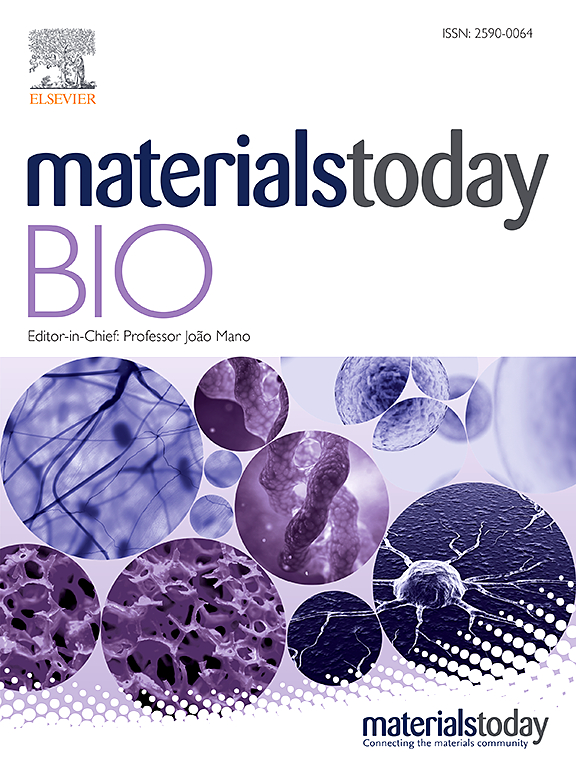CD44-targeted virus-mimicking nanomedicine eliminates cancer stem cells and mitigates chemoresistance in head and neck squamous cell carcinoma
IF 8.7
1区 医学
Q1 ENGINEERING, BIOMEDICAL
引用次数: 0
Abstract
Cancer stem cells (CSCs) play critical roles in tumor growth, metastasis, and chemoresistance. Although several small-molecule inhibitors designed to inhibit CSCs have been investigated in clinical trials, their inadequate tumor targeting and potential off-target side effects have led to poor outcomes. A CD44-targeted virus-mimicking nanomedicine encapsulating the BMI1 inhibitor PTC209 (PTC209@VNP-HA) was designed to treat head and neck squamous cell carcinoma (HNSCC). We used a dendritic mesoporous silica nanoparticle (MSN) as the core for virus-mimicking nanoparticle (VNP) formation after adding shell particles to the MSN surface. The VNP surface was then modified with hyaluronic acid (HA), and PTC209 was adsorbed by mesopores to form PTC209@VNP-HA. In this system, HA is used to target CD44+ CSCs. The rough surface of VNP-HA provided better drug delivery efficiency than smooth nanoparticles modified with HA. VNP-HA enhanced the cancer inhibitory effect of PTC209 12-fold compared to the administration of free PTC209, leading to significantly higher bioavailability of PTC209. Both in vitro and in vivo assays showed that PTC209@VNP-HA inhibited cancer stemness, proliferation, and metastasis in HNSCC. Mechanistically, this inhibitory effect is closely associated with DNA damage/apoptosis signaling. Using a series of preclinical models in murine systems, we confirmed that PTC209@VNP-HA eliminated BMI1+ CSCs, and greatly inhibited the proliferation and metastasis of HNSCC when combined with cisplatin.This study investigated PTC209@VNP-HA as a novel and potentially transformative HNSCC treatment option that eliminates CSCs, prevents metastasis, and overcomes cisplatin resistance.

求助全文
约1分钟内获得全文
求助全文
来源期刊

Materials Today Bio
Multiple-
CiteScore
8.30
自引率
4.90%
发文量
303
审稿时长
30 days
期刊介绍:
Materials Today Bio is a multidisciplinary journal that specializes in the intersection between biology and materials science, chemistry, physics, engineering, and medicine. It covers various aspects such as the design and assembly of new structures, their interaction with biological systems, functionalization, bioimaging, therapies, and diagnostics in healthcare. The journal aims to showcase the most significant advancements and discoveries in this field. As part of the Materials Today family, Materials Today Bio provides rigorous peer review, quick decision-making, and high visibility for authors. It is indexed in Scopus, PubMed Central, Emerging Sources, Citation Index (ESCI), and Directory of Open Access Journals (DOAJ).
 求助内容:
求助内容: 应助结果提醒方式:
应助结果提醒方式:


